These are some brief thoughts and impressions on two sporty Dunlop tires, including the Q5S (a 120/70/17 fitted to the front of our Aprilia Tuono 660 Factory test bike) and the Dunlop Q4 (a 180/55/17 on the rear of that bike). You can read our review of the Tuono 660 Factory here.
Some background is in order. The last track day our editor did was at the Losail Circuit in Qatar (recently, for some reason, renamed Lusail) roughly 16 years ago. Recently, he was invited to participate at a track day in Buttonwillow, California.
Our editor had never been to the Buttonwillow track. He entered the intermediate group on the Aprilia and tried to learn the lines (without much success, frankly). The 660 Tuono was a good bike to be on this day given the stale nature of the editor’s track skills and his unfamiliarity with the circuit.
We don’t know why Aprilia put a Q5S front on our test bike along with a Q4 on the rear, but both tires were essentially new when MD picked up the bike, and both tires were in very good shape when we participated in the track day.
Before we discuss our impressions, here are Dunlop’s descriptions of the two tires:
Dunlop Q5S Sportmax Tires
The fifth generation Dunlop Sportmax Q5S is a purpose-built, track-day and street tire that has been in the making for over 4 years. Evolving from a blend of the highly popular Sportmax Q3+ and Dunlop’s cutting-edge MotoAmerica spec road race tires, the Q5S utilizes the very best technologies Dunlop has to offer in this high performance track AND street tire.
The main difference between the Q5S and the Q5 is the Q5 is the DOT legal track tire that you do not need tire warmers for while the Q5S is a high performance track tire that is also available to use on the street as well.
Features:
- Even more user-friendly, as dry and wet grip, tire compliance, and warm-up times have all been improved
- New race tire derived compounds provide incredible grip
- Updated profiles increase footprints at more extreme lean angles to give you more tire on the road for more grip and less slip
- Made in USA
Dunlop Sportmax Q4 Tires
Built specifically for the track, and upon the legacy of the Q2 and Q3, the Dunlop Q4 Sportmax tire continues to push the performance capabilities of a street legal tire. Dunlop’s engineers have utilized a new tread pattern that increases the contact patch during extreme lean angles and updated compounds that provide better grip than the Q3+ at all temperatures. Dunlop was able to reach lean angles up to 62 degrees, which is more than any other street legal tire they offer.
Riders on high performance motorcycles looking for the next generation of track day tires should look to the Dunlop Q4 Sportmax tires.
Features:
- Purpose-built for track use
- Tested at Huntsville Proving Grounds, Virginia International Raceway, Chuckwalla Raceway and Roebling Road
- Achieves lean angles up to 62 degrees, more than any other street-legal tire Dunlop has ever made
- User-friendly and does not require tire warmers
- Single compound
- Able to run at street tire pressures, eliminating the need for chassis or electronic adjustments
- Rear tire contains carbon black compound just like Dunlop’s racing slicks for maximum grip
- Jointless Tread (JLT) technology uses a continuously wound strip compound to optimize stability, flex, and grip across the tire profile
- Carbon Fiber Technology (CFT) uses carbon fiber reinforcement in the sidewalls for exceptional cornering performance, braking stability and feel
- Made in the USA
As you can see, the Q4 is more of a hard core track tire, while the Q5S, still appropriate for track use, is a bit more suitable for the street.
We understand the Q4 has been discontinued in favor of the new Dunlop Q5, but is still available in limited quantities. Our readers might be more interested in the Q5S, which is a current generation tire.
We thoroughly enjoyed testing the Tuono 660, and gave it a favorable review. Nevertheless, our editor never felt great feedback from the front tire, which limited his ability to aggressively attack corners.
At the track day, we tried several different suspension settings to improve confidence in the front contact patch, generally without success. Nevertheless, the tires, both front and rear, provided tenacious grip.
With the Q5S on the front, turn-in was better described as progressive and predictable, rather than quick. The tires seemed to have a round profile that transitions from side-to-side in a linear fashion, rather than quickly transitioning. Both tires have a very steep sidewall where the grip surface ends. This means grip is available at very high lean angles, which we failed to fully exploit (although we came close on the rear Q4).
Braking grip and stability were excellent, particularly from the front tire. Both tires seemed to warm up quickly, as well, without using tire warmers at the track. The air temperature was in the 60s and 70s Fahrenheit .
We can’t comment much on wear, because our mileage on the tires was very limited. We should note that a Dunlop representative at the track suggested cold tire temperatures in the range of 32-25 psi, which seemed rather high for track use.
In sum, grip from both tires was excellent, but feedback from the front tire was less than ideal in our opinion. In fairness, this may have had to do with our suspension set-up on the 660 Tuono more than a reflection of the tire characteristics.

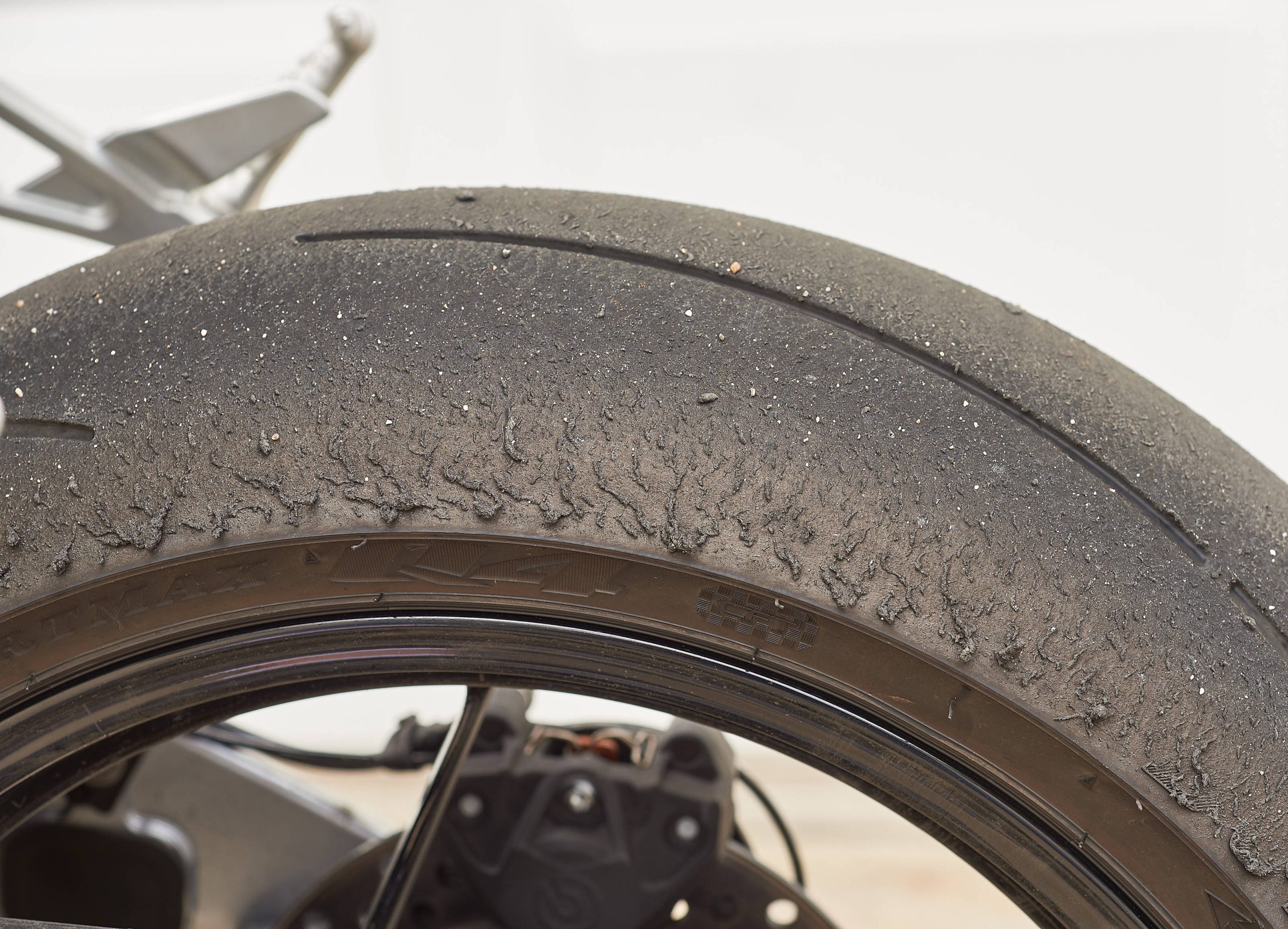
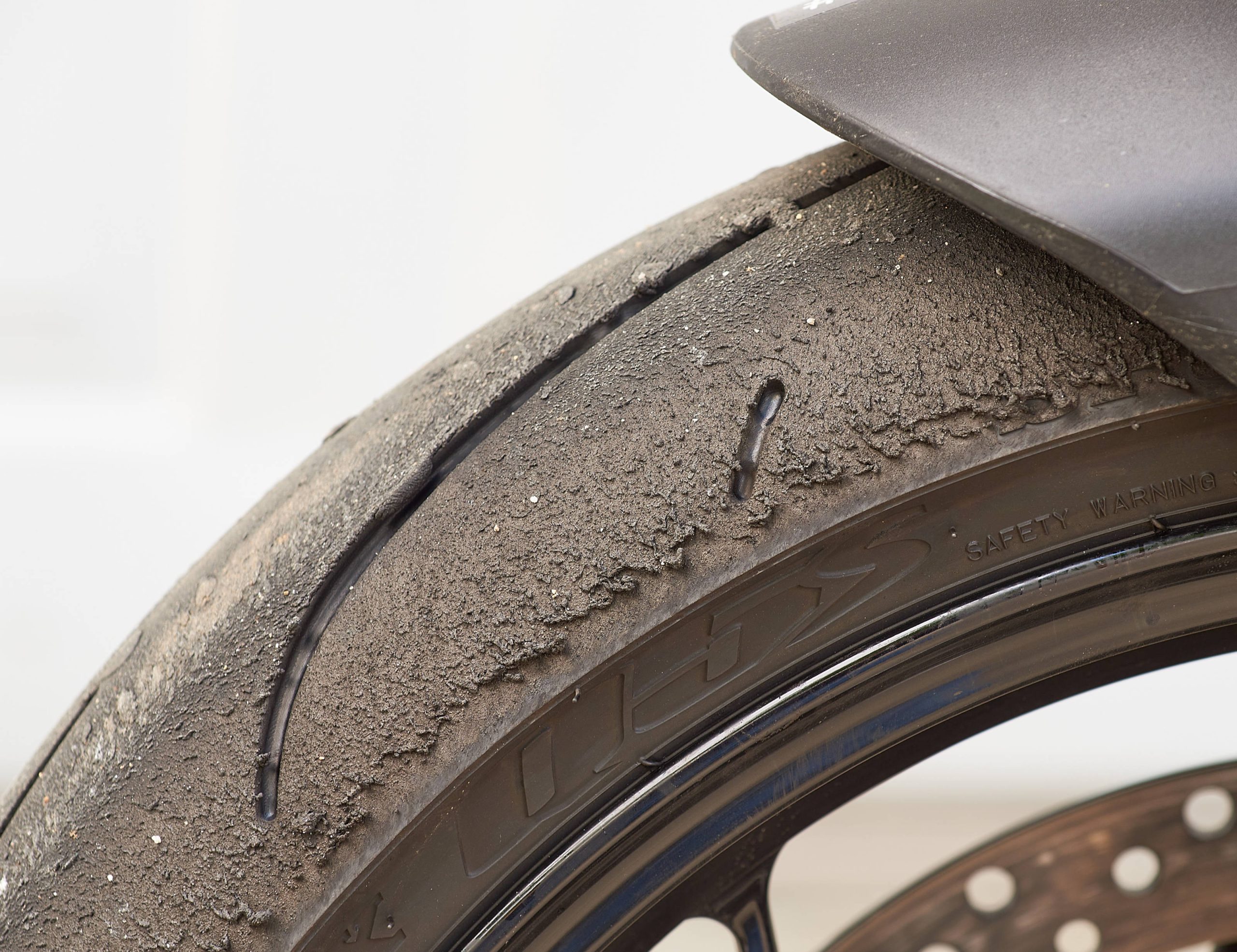

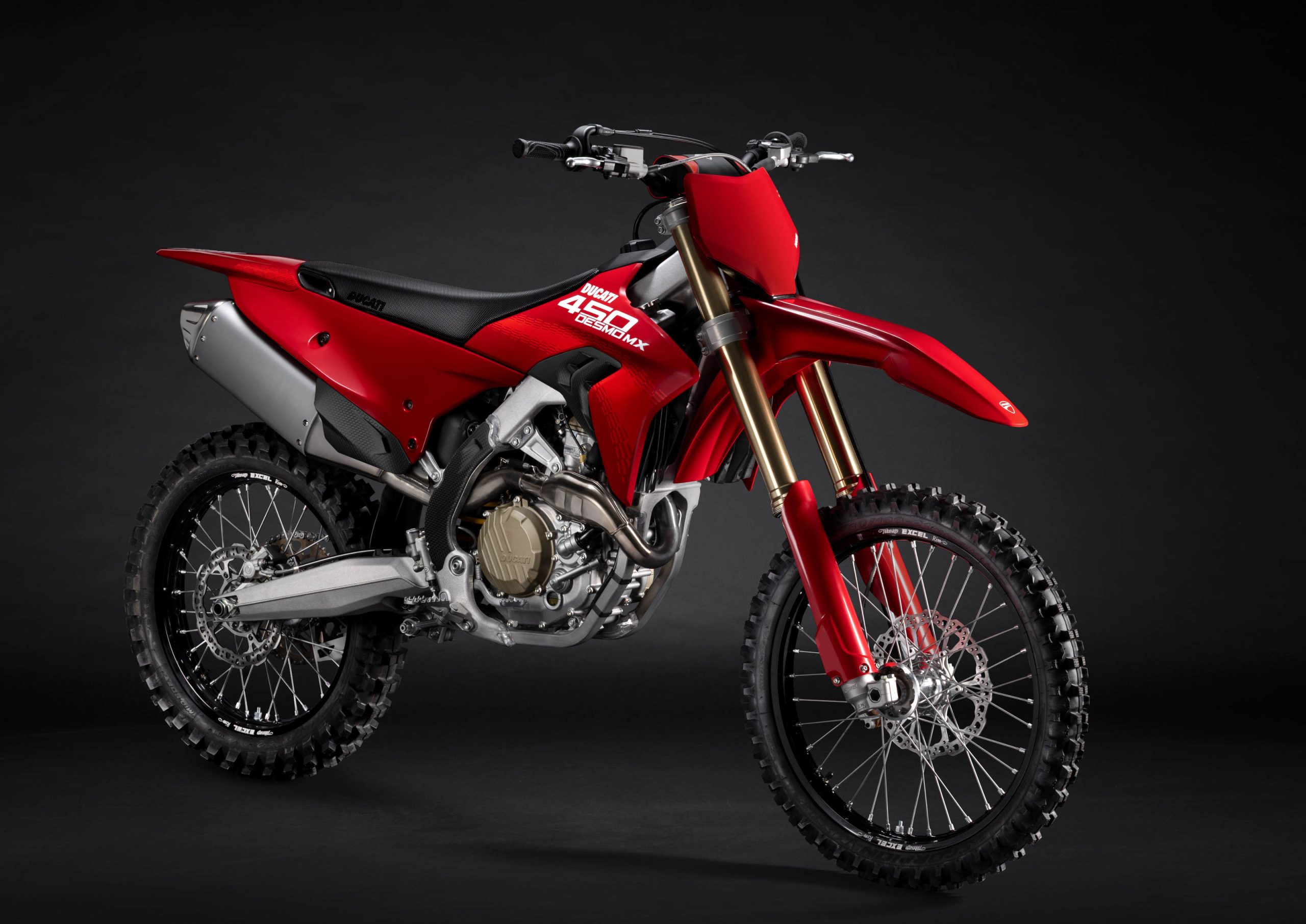
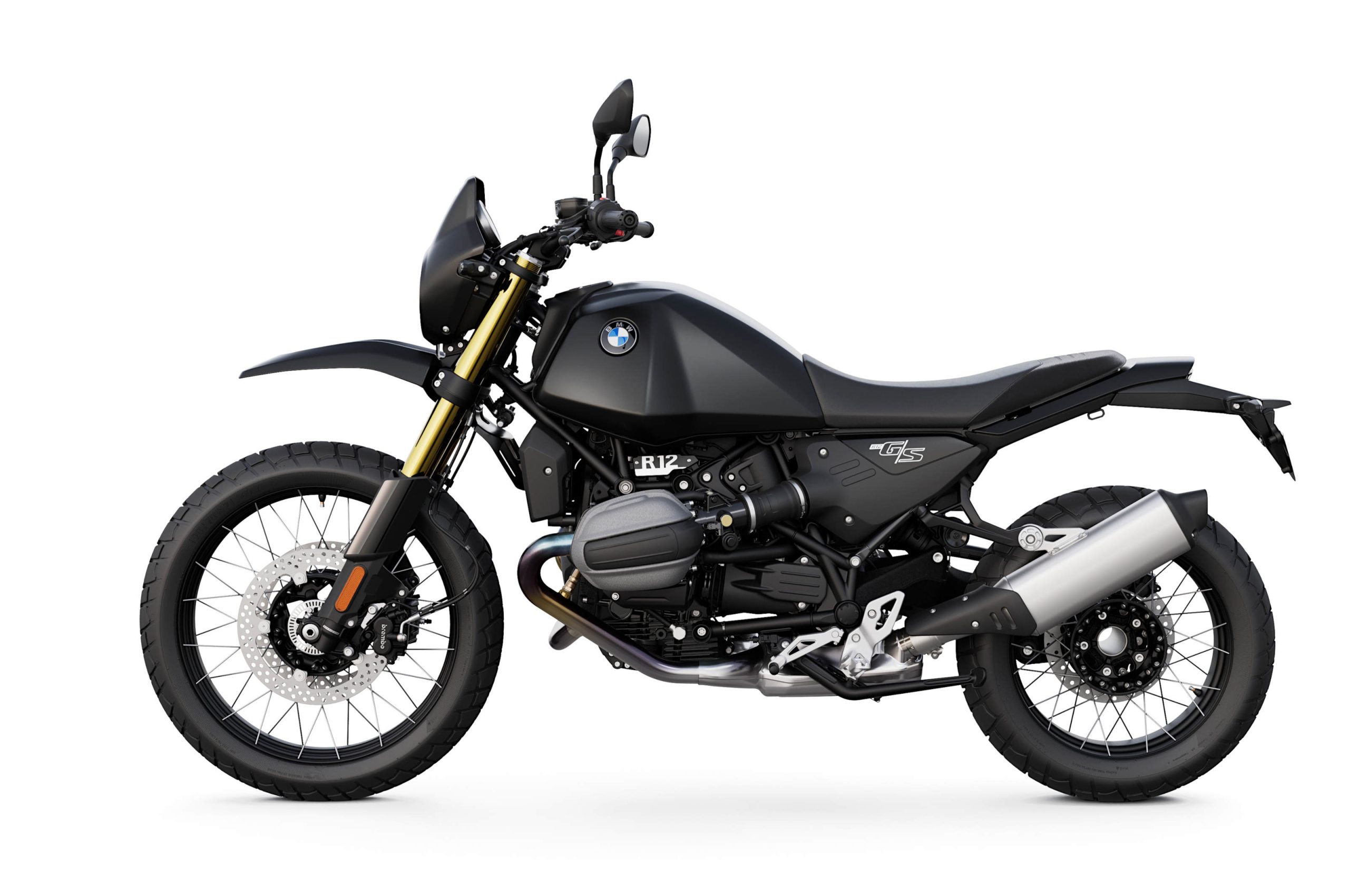
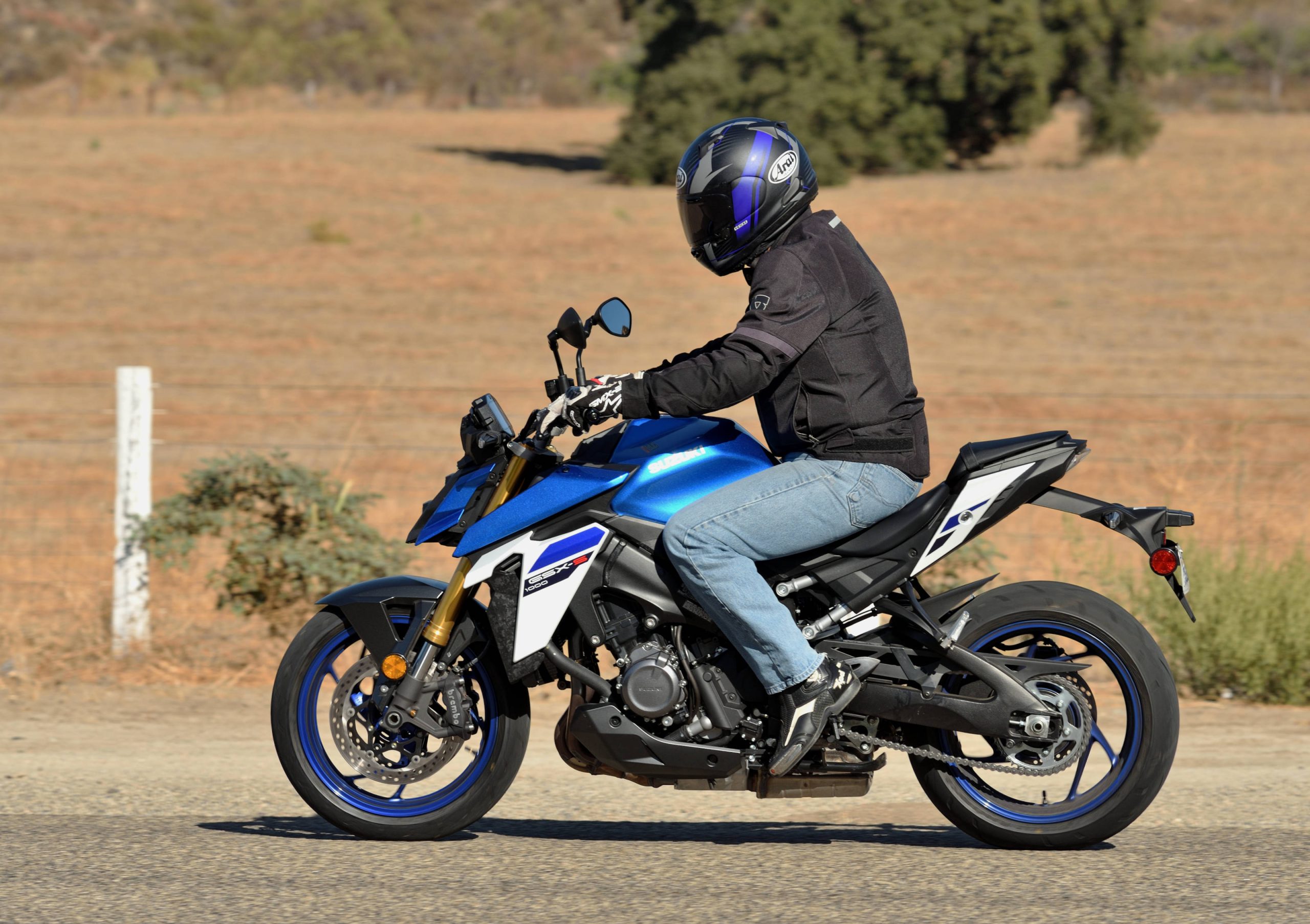
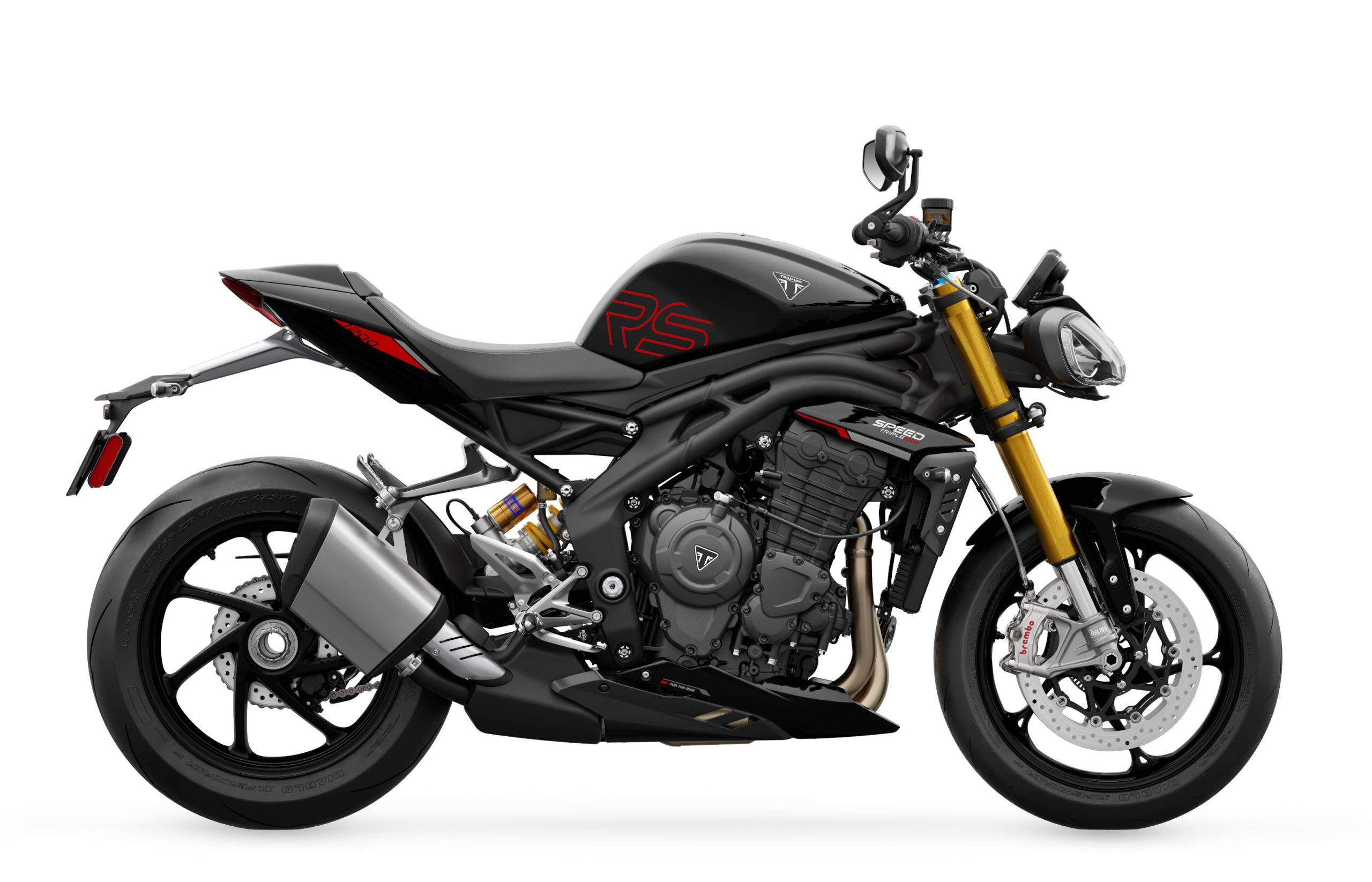
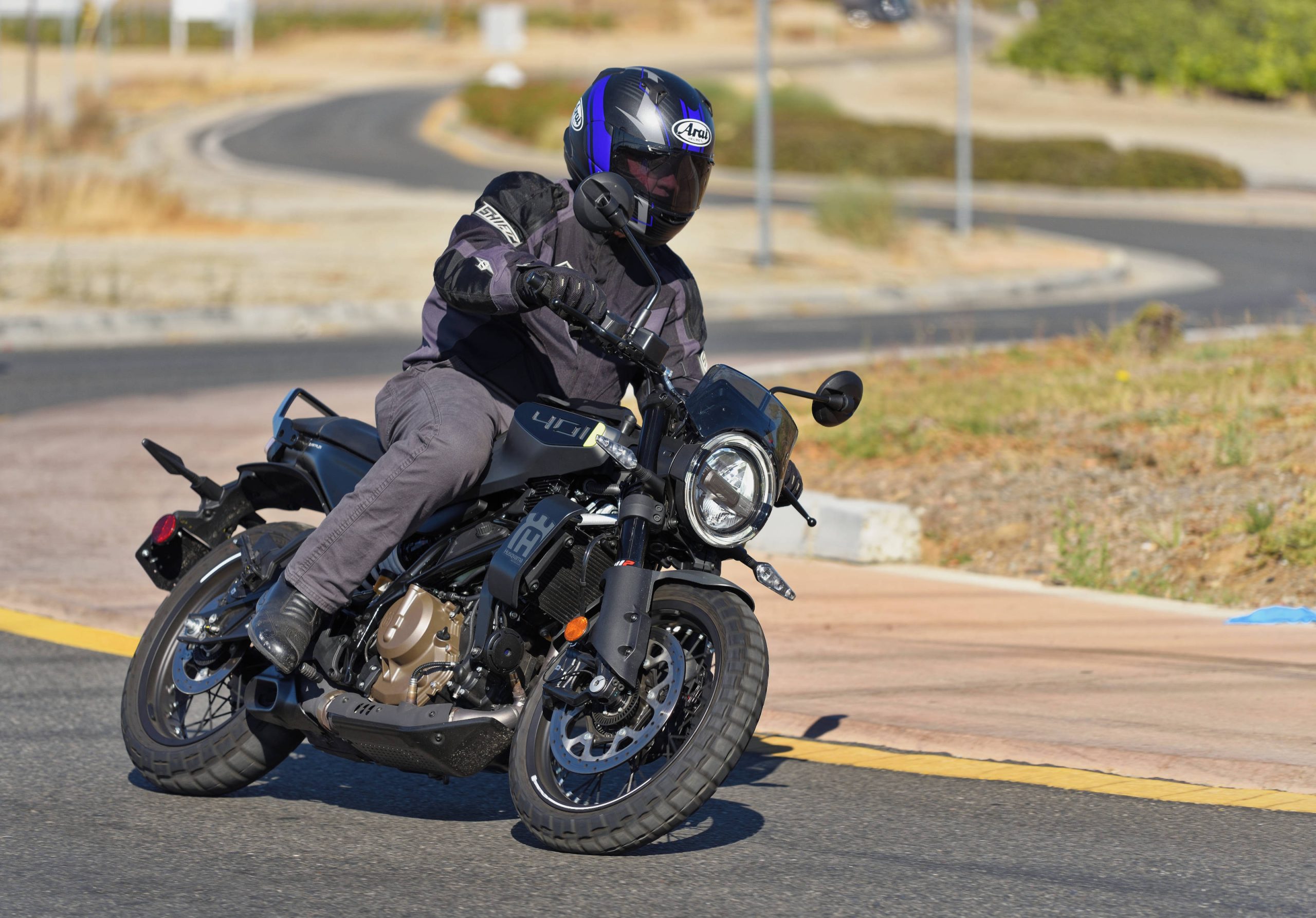
Im not sure anymore, but last year I had Q5Ss and they definitely looked 2-compound. And the middle compound definitely seemed to last longer
I’ve been running Dunlop Q3+ rubber on my sporting street bikes for many seasons now. They come up to temperature quickly and provide excellent feedback. I know many prefer longevity over grip on street bikes, but to me a sticky tire that provides predictable and repeatable results is paramount. A sticky tire is a safe tire. With that said, I find that the Q3+ strike a good balance of grip and wear. Also, I do prefer a round radius over a triangle/trapezoid on a street tire – I’m glad that Dunlop retained that profile.
I look forward to riding the new Q5S. I have a bike that requires new tires and this will be a good opportunity to ride bikes with both Q3+ and Q5S installed in the same riding season.
It looks like the tires got pretty even wear. Generally if the suspension settings are too far off the tire will show odd wear patterns.